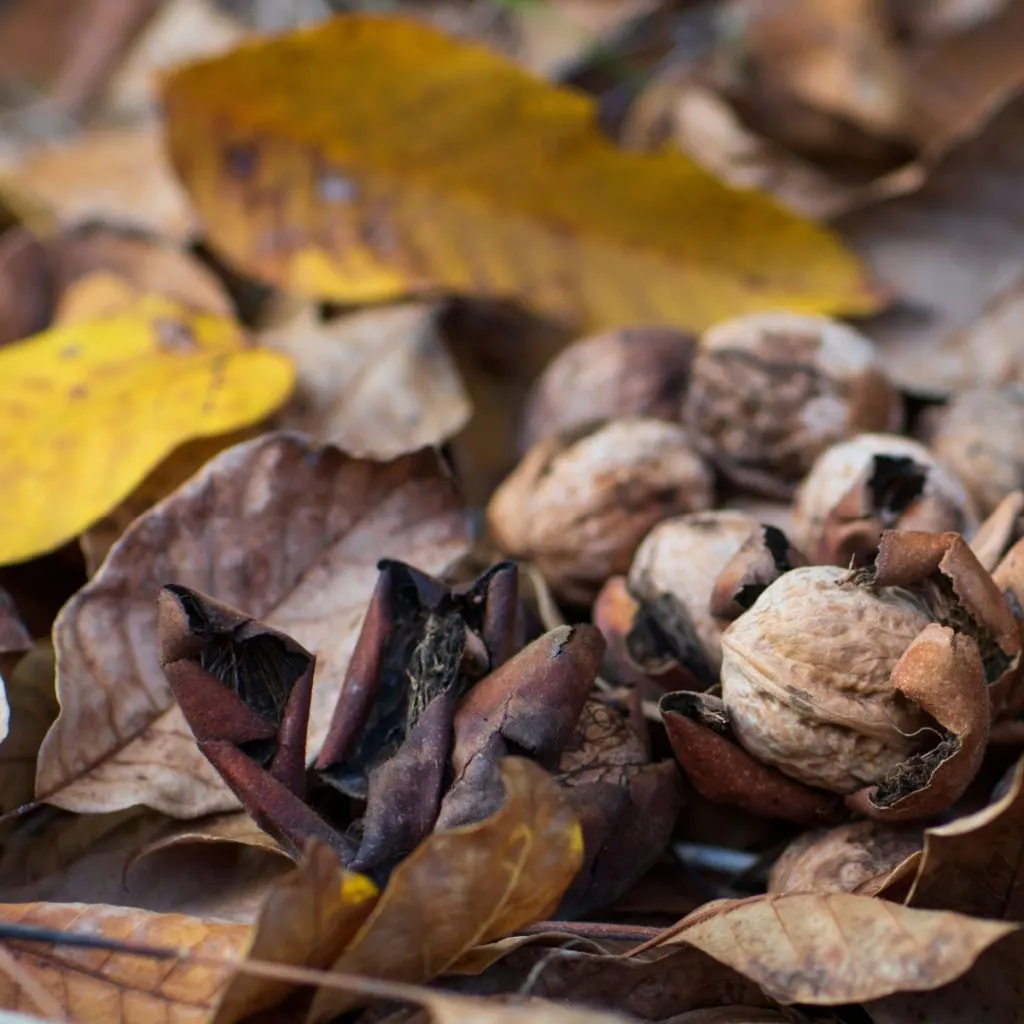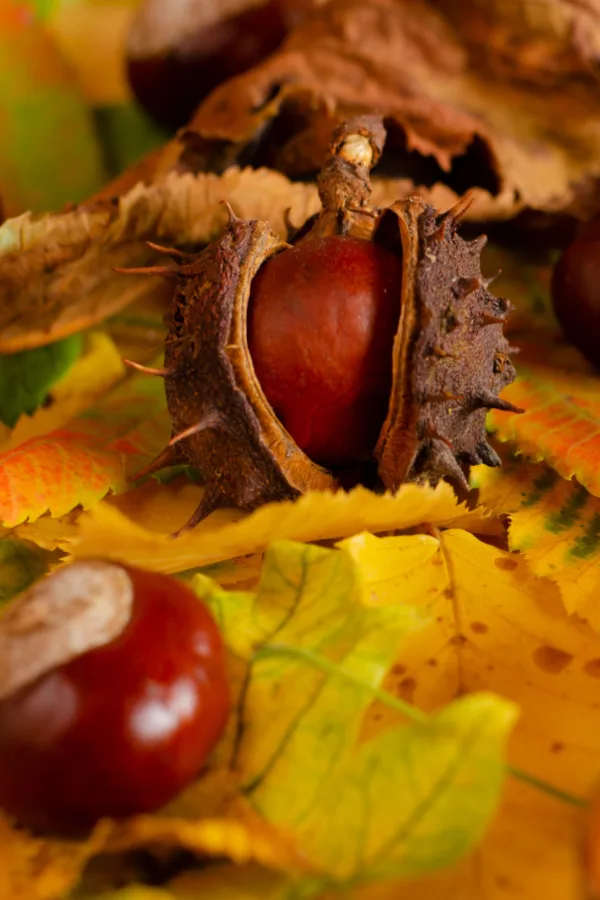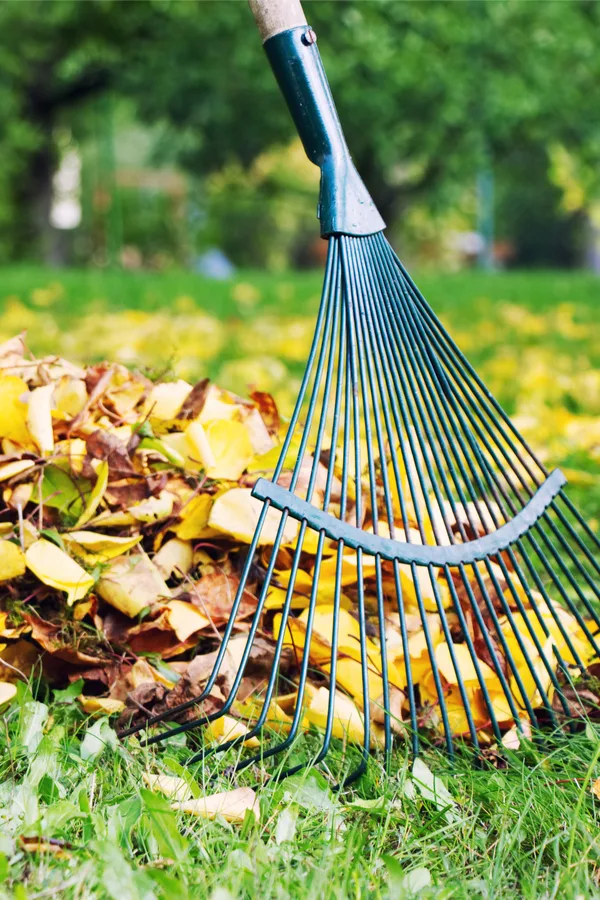As wonderful as many of autumn’s falling leaves can be for home gardens, flowerbeds and compost piles – did you know that there are three leaf varieties you should never compost – or use in and around your garden and flowerbeds?
Unfortunately, every fall, many gardeners unknowingly fill their compost bins with leaves that can either poison future plants – or slow their compost pile’s ability to actively decompose. And many, times they also put those same harmful leaves around many of their plants as a winter mulch.
But although most leaves are wonderful for making compost and using as a mulch to protect and power plants, there are indeed a few leaves that can actually harm plants. In fact, in some cases, they can actually spell the end of the line for them. Which is exactly why knowing which leaves you can use and which you can’t when gardening is extremely important!

With that in mind – here is a look at three leaves you should leave out of your compost pile entirely – along with a few others to use in moderation.
3 Leaves You Should Never Compost Or Use In Gardens & Flowerbeds!
#1 Buckeye / Horse Chestnut Leaves
At the top of today’s list are the leaves of the buckeye tree. Also known as a horse chestnut tree, the leaves of this tree should be avoided altogether when gardening – and for several reasons.
For starters, the waxy leaves of the tree are incredibly difficult to compost. With a protective coating, the leaves simply take forever to break down. But if that wasn’t bad enough, the leaves also contain a toxin that can cause all kinds of stomach discomfort.
Unfortunately, even though you don’t consume the leaves, when it is used to make compost or as a mulch around vegetable plants or fruit trees and bushes, the toxin can leach into the soil and into the fruit.
The toxin can actually be found in all parts of the tree, including the nuts it produces as well. It does take a large concentration to pass through to humans, but at the end of the day, it’s simply not worth the risk to use in the garden.

#2 Black Walnut Trees – 3 Leaves You Should Never Compost Or Use In Gardens & Flowerbeds
Another tree’s leaves to keep entirely out of your garden, flowerbeds and compost pile are the leaves from black walnut trees. And once again, it is because of a chemical that the tree produces and releases.
In the case of black walnut trees, the chemical (juglone) isn’t dangerous to humans, but to the livelihood of plants. And the list of plants affected by it is quite long! It includes common vegetable plants like tomato, pepper, asparagus and potato – along with peonies, lilacs, petunias and more. It can even be detrimental to many fruit bushes and trees as well.
So what does juglone do to these plants? When it is present around the root zones of affected plants, it acts as a poison. And it can all but kill plants in a matter of weeks.
Juglone can be found in the roots of black walnut trees as well as their stems, buds and nut hulls. This is exactly why you never want to grow black walnut trees within 50 feet of gardens or flowerbeds. The roots of the tree will all but make growing plants nearby impossible.

There are also trace amounts of the toxin in the leaves as well. And when you factor in that when raking the leaves up, you can also rake up nuts and shells that have even more of the chemical – it’s simply best to leave black walnut leaves out.
Why? Because in the compost pile, the chemical will pass right through to the plants wherever you use the compost. And the same goes for when using the leaves as a mulch.
#3 Beech Leaves – 3 Leaves You Should Never Compost Or Use In Gardens & Flowerbeds
The leaves of beech trees are not poisonous to humans, pets or to plants – but they do contain a compound that makes them very unattractive to use for gardening.
Beech trees contain high amounts of lignin – which acts as a preservative for the leaves. Beech tree leaves can take forever to break down. Because of that, when used in compost piles, they can slow the entire piles’ decomposition process down.
In fact, compost piles with beech tree leaves can take four to five times the normal amount of time to break down! See our article: How To Compost Leaves Fast – 4 Secrets To Turn Leaves Into Great Compost This Fall!

Other Leaves To Be Careful With – 3 Leaves You Should Never Compost Or Use In Gardens
In addition to the three leaf types above, there are a couple of other tree leaves to be cautious about using. And at the top of that list are the leaves from oak trees.
Oak tree leaves are more acidic than other leaves. If you use too many around non-acidic loving plants, it can change the pH of the soil. That in turn can harm the plants. The same goes for using oak leaves in a compost pile. They are good to use, but always make sure to keep the pile at less than 10% oak leaves to not affect the pH of the finished compost.
Another two trees to only use in moderation are holly and magnolia trees. Like beech trees, they also contain higher amounts of lignin as well. If composting these leaves, always shred the leaves first to help decomposition. It’s also best to never use more than 10% of them in a compost pile.
As for trees that are safe to use at will – maple, ash, birch, cottonwood, poplar, elm cherry, and the leaves of fruit tree leaves are all excellent for using in the garden, in flowerbeds and in compost piles!
This Is My Garden
Follow Our Facebook Page For Great Gardening Tips And Advice! This Is My Garden Facebook Page
This Is My Garden is a garden website created by gardeners, for gardeners. Jim and Mary Competti have been writing gardening, DIY and recipe articles and books and speaking for over 15 years from their 46 acre Ohio farm. They publish three articles every week, 52 weeks a year. Sign up today to follow via email, or follow along!
